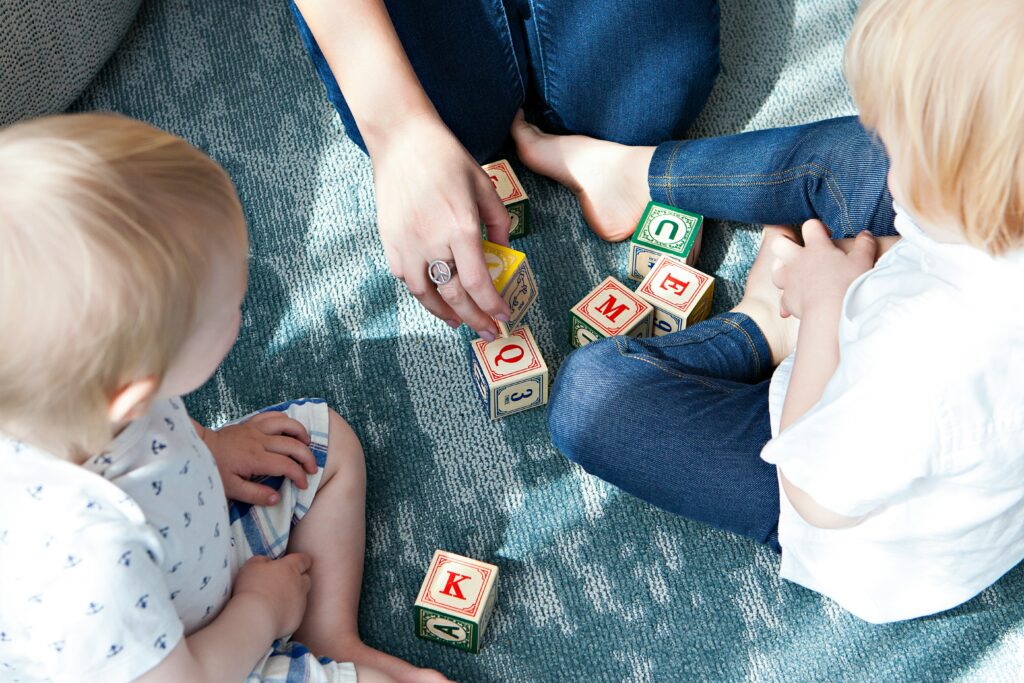Children's play Therapy in Calgary
Children often struggle to express their emotions and thoughts through words alone. That’s where play therapy comes in—a research-backed approach that helps children process emotions, develop problem-solving skills, and build resilience. In play therapy, children often use objects or symbols to convey their thoughts and work through particular issues. If you’re looking for an experienced Calgary psychologist specializing in play therapy, Innerlogue is here to help.

What is Play Therapy?
Play therapy is a form of psychotherapy that uses play as a medium for children to communicate. When children play, they are at their most candid form which allows the therapist to formulate their assessment. Through toys, art, storytelling, and imaginative play, children can express emotions that may be difficult to verbalize. Our Calgary based therapists are trained for these sessions, ensuring a safe, supportive environment where children feel heard and understood.
Who Can Benefit from Play Therapy?
Play therapy is effective for children facing a variety of emotional, behavioral, and social challenges, it is often used as a method to uncover underlying emotions, thoughts and struggles the child might be going through ,which includes:
- Anxiety and stress
- Autism Spectrum Disorder (ASD)
- Trauma and PTSD
- ADHD and behavioral disorders
- Grief and loss
- Adjustment
- Bullying and social difficulties
- Parental separation or divorce
- Low self-esteem
If your child is struggling with any of these issues, our therapists can help them develop healthy coping mechanisms and emotional regulation skills. In fact, studies have shown that playing is critical for children and it also has benefits for adults’ well being.
How Does Play Therapy Work?
Registered Psychologists specializing in play therapy will tailor sessions to each child’s unique needs. The main goals of Children’s Play Therapy are to help them regain their former functioning, build their self-esteem and establish the child’s coping mechanism. Here’s what a typical session might look like:
- Building Trust – The therapist creates a safe space where the child feels comfortable.
- Engaging in Play Activities – Depending on the child’s preferences, this could include drawing, role-playing, or using toys to express emotions.
- Observing and Guiding – The therapist carefully observes behaviors and interactions, offering gentle guidance to encourage emotional expression and problem-solving.
- Parent Involvement – Parents may be given strategies to reinforce therapy at home.
- Finding the Right Therapist in Calgary. When searching for a therapist in Calgary, consider:
- Experience & Credentials – Look for a registered psychologist
- Child-Friendly Approach – A therapist should create a welcoming, non-judgmental environment.
- Parent Collaboration – The best therapists work closely with parents to support their child’s progress.

Processing big feelings at their own pace
Playing is a child’s natural language, it’s the most efficient and accurate way for them to display their feelings and thoughts. In the first decade of a child’s life, they go through a development phase where it can be hard for them to comprehend complex situations and express themselves efficiently. Sudden changes in a child’s behavior such as withdrawal, sudden tantrums, defiance, disobedience or increased anxiety can mean your child might need some help with navigating their emotions, but they might not know they need help or how to ask for it. Transitions in life is usually a big step for children and they might find it hard to process it, here are some common situations where play therapy could benefit your child:
Family Changes or Disruptions
- Divorce or separation of parents
- A new sibling or blended family dynamics
- Relocation or moving to a new home or school
Trauma or Loss
- Death of a loved one (including pets)
- Physical, emotional, or sexual abuse
- Witnessing domestic violence or accidents
- Medical trauma (e.g., surgery, chronic illness)
Behavioral Challenges
- Frequent tantrums, aggression, or defiance
- Trouble following rules at home or school
- Social withdrawal or excessive clinginess
Emotional Difficulties
- Anxiety, phobias, or excessive worry
- Sadness, low self-esteem, or depression
- Difficulty managing anger or frustration
Developmental and Learning Concerns
- Autism spectrum disorder (ASD)
- Attention-deficit/hyperactivity disorder (ADHD)
- Delays in speech, motor skills, or emotional regulation
Bullying and Peer Issues
- Being bullied or excluded
- Trouble making or keeping friends
- Fear of school or social situations
Adoption or Foster Care Transitions
- Adjusting to new caregivers or environments
- Processing identity, attachment, and trust issues
Get Started with Play Therapy with Innerlogue today
If you’re searching for a Calgary psychologist for children, play therapy could be the right path for your child’s emotional well-being. Reach out to us today to learn more about how this approach can help your child thrive.
Contact a Calgary Psychologist at Innerlogue Today
Ready to take the next step? Schedule a consultation with a registered Calgary psychologist specializing in play therapy to support your child’s emotional and psychological growth.
Why Choose Play Therapy for Your Child?
- Safe & supportive environment
- Effective for a range of emotional & behavioral challenges
- Encourages healthy self-expression
- Guided by trained professionals
Invest in your child’s well-being today—because every child deserves to be heard, understood, and supported!



